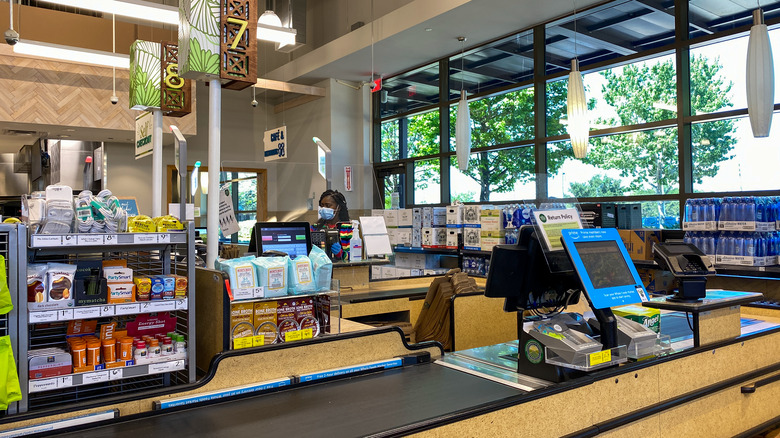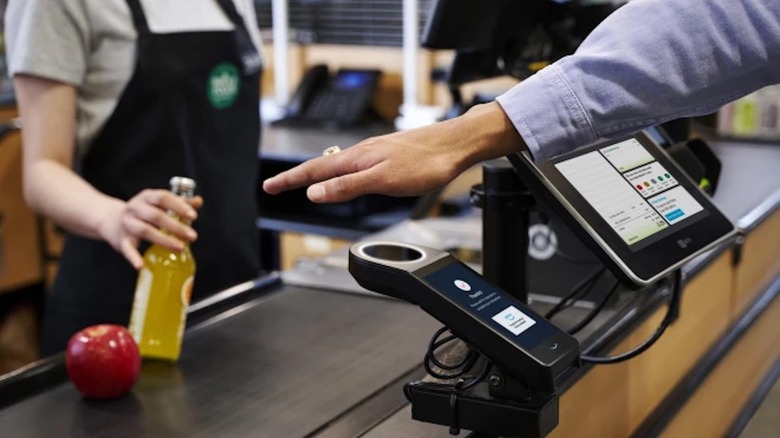You Will Soon Be Able To Pay With Your Palm At All Whole Foods Locations
Amazon has announced it will be expanding its Amazon One pay-by-palm print system as an option for customers at all Whole Foods stores across the country within the year. According to Amazon, Amazon One, which first launched as a pilot program at select Amazon Go stores in 2021, has been slowly expanded to other Whole Foods and Amazon Fresh locations and has so far enrolled over 3 million users. Customers who chose to use Amazon One simply need to scan their handprint and enter their credit card information and phone number into the system. Once they're signed up, they don't need to use a credit card or their phone to check out at participating stores — all they need to do is hold their palm over a scanner and it will automatically access their card. Additionally, Amazon Prime users can choose to link their Prime account to their Amazon One account to access members-only discounts in-store.
In addition to the more than 500 Whole Foods stores that will be receiving the new check-out system in the coming months, Amazon noted that several other businesses have adopted the system, including some Panera Bread and Hudson locations and multiple sports venues around the country. This will give these businesses access to special features like age verification for alcohol sales and rewards to their membership accounts.
Is Whole Foods' use of Amazon One safe?
While Amazon calls the program a convenient, unbiased, and contactless way for customers to pay, there have been concerns raised about the program's security since its inception. A report from Syracuse University, first questioned the program when the pilot began in 2021 suggesting that palm prints would be easier to fake than facial recognition software because so many features overlap between people and there is no obvious way to refute it, unlike facial recognition software.
Amazon One's FAQs state that all handprint data is stored separately from other customer information and cannot be duplicated or spoofed because of the unique way the technology scans the texture and veins of the hand. Additionally, the retailer claims the scans can "detect liveness" and will automatically decline images of handprints or silicone replicas. Just because someone may not be able to use the information to access your Amazon account though, does not mean it could not be potentially taken for other purposes. As Lifewire reported, unlike a credit card, if hackers steal biometric data like fingerprints, they can't be changed and they are forever accessible to the thieves.
Due to the permanent nature of biometric signatures, Illinois, Texas, and Washington have already passed laws regarding the storage and sale of customers' biometric data and several others are considering similar measures. Although Amazon says it does not sell biometric data or track transactions made with the system, it is uncertain if the program will create legal issues for security.

